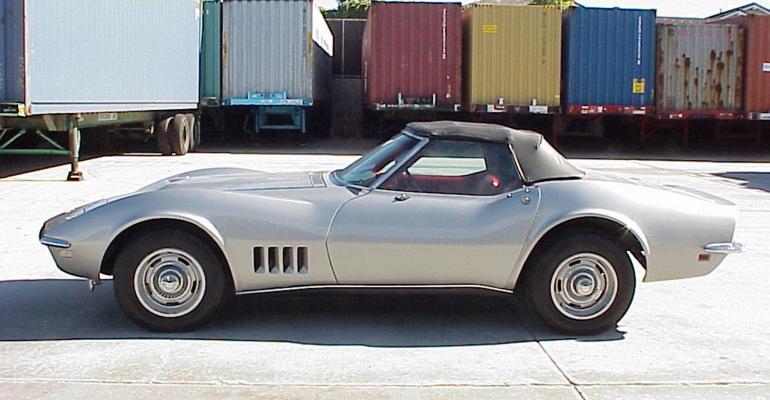By Hannah Elliott and Justin Ocean
(Bloomberg) -- As anyone who follows the collector car market has noticed, it’s cars from the 1970s, ’80s, and ’90s that are white-hot in their popularity. For that matter, anyone following vintage cars on social media has probably noticed it, too.
Cursory glances through Bring a Trailer auctions and the value ratings on Rally Rd. show double-digit percentage jumps and thousands of dollars’ worth of pricing spikes on things such as 1990s-era Toyota Supras and the Ford Mustang 7-Up Edition. According to the most recent update to the Hagerty Price Guide, the bible for those who track collectable cars, 24% of cars from the 1970s experienced double-digit growth since January 2018, and 38% of cars from the 1980s increased in price by a significant amount. Together, the two decades show the most growth of any collectable era.
But the rest of the market is bleaker. Values of cars from the 1940s, ’50s, and ’60s have flatlined, with 82% of all vehicles in the pricing guide showing little to no real or expected value growth during the same time frame.
That means iconic vehicles such as Mercedes SLs and Chevrolet Corvettes aren’t expected to gain real value anytime soon—and according to the latest Hagerty Vehicle Rating, even the stunning Porsche 911 Turbo and the hipster-cool Porsche 924 have already had their day in the sun.
“These are notable as examples of vehicles that saw a big increase in values in 2014 and 2015 and then had a later drift down in values,” Hagerty’s Jonathan Klinger says, citing the Porsche 930 as well. “All are examples of good cars—some better than others—but with mature markets,” meaning that neither many new buyers nor new sellers are entering the market.
To get to these conclusions, Hagerty uses a proprietary algorithm called the Hagerty Value Rating (HVR) that evaluates the value of a car according to insurance quote activity, the number of new policies purchased, sales data, auction activity, and other metrics. Then it ranks each one, compared to the overall collector market. Results are based on a 100-point scale. A car that matches the overall trend of the collector market will score 50. Those that are trending better than market values will score higher. Those performing worse than market value will score lower.
The models listed in this piece are those with some of the lowest scores of any for sale today, performing well below the market average. This is for a number of reasons:
- Pop Culture Trends: The adage, “You can’t sell an old man’s car to a young man” is true for a reason. Buyers tend to get vintage cars they lusted after as kids—so Volkswagen Golfs and Buick GSXs are popular again, 30 or 40 years on. Conversely, the 1968 Lincoln Continental your dad kept parked in the garage for years may not be as appealing.
- Pricing: There’s generally greater interest and potential growth in the value of more affordable cars. For instance, the median price on this “Losing Steam” list ($35,000) is more than double that of the vehicles with the best proportionate growth rates ($15,000). These have already reached their peak prices, and there’s nowhere to go but down.
- Lackluster Performance: Yes, this applies, especially to the Porsche 911 Turbo and the Ferrari 308 noted below. Both look fast, cool, and sexy, but they can easily be beaten on the road by any modern Lexus or Audi.
That’s not to say any of these are “bad” cars—that’s between you, your banker, and your refined level of taste—it just means they aren’t expected to gain significant value in the relatively near future and may even lose some value on their way off what may have been a trendy bubble.
“We’re not disparaging the vehicles on this list,” Hagerty’s Brandan Gillogly wrote in the report. “Just know that if you own one you plan on selling, it may take a bit more time and effort [to sell the car]. If you’re planning on buying a car that keeps making this list, it might mean the price is about to head down.”
To contact the authors of this story:
Hannah Elliott in New York at helliott8@bloomberg.net
Justin Ocean in New York at jocean1@bloomberg.net





